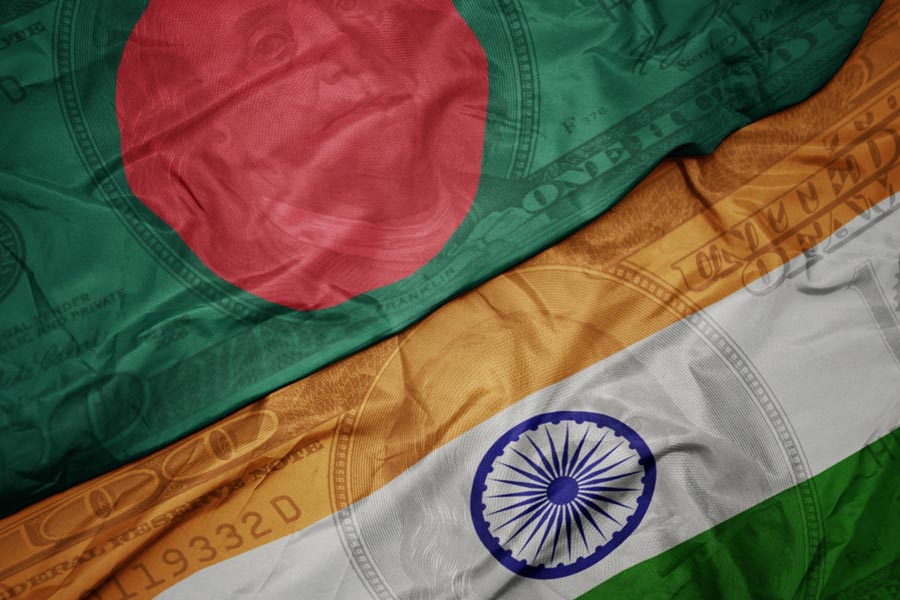Small cities
Sir — Imagine if all the places that one had to visit in a city were within walking distance from the house. Sounds utopian? Not really. The concept of ‘15-minute cities’ — they allow people to meet life’s basic amenities, such as education, recreation and so on, within a short walk or bike ride from their home — is gradually gaining traction. While the idea is not novel — it can be traced back hundreds of years to the historic European villages and even to the main streets in the United States of America before the Second World War — the fresh stimulus for this urban planning model has been the result of the pandemic. Although the idea of being confined to a neighbourhood can be suffocating for some, it may perk up those living in flood-prone cities like Calcutta or Bengaluru.
Dhruv Khanna,Mumbai
High stakes
Sir — The Election Commission of India has declared the dates for the Karnataka assembly elections (“Karnataka polls in May, night bar on ATM vans”, Mar 30). It is expected to be a close contest between the Bharatiya Janata Party and the Congress with the Janata Dal (Secular) playing the kingmaker.
In the outgoing 224-member assembly, the BJP had 119 legislators, while the Congress and the JD(S) had 75 and 28 seats, respectively. Therefore, the possibility of the two Opposition parties forming a coalition in order to take down the BJP cannot be ruled out.
Bhagwan Thadani,Mumbai
Sir — The upcoming Karnataka assembly polls are significant for both the Congress and the BJP. It is going to be a litmus test for the Congress leader, Rahul Gandhi. This is the first election after his disqualification from the Lok Sabha owing to his conviction in a 2019 defamation case. It will also be a testing ground for the newly-appointed Congress president, Mallikarjun Kharge, who hails from the state. Further, Rahul Gandhi covered major parts of the state during the Bharat Jodo Yatra. The elections will thus show whether his message of unity had any influence over the voters.
For the BJP, the stakes are even higher. The outcome of this election will set the tone for the 2024 general elections. Moreover, the election will show whether the allegations about the Adani Group have dented Narendra Modi’s popularity.
Yash Pal Ralhan,Jalandhar
Dubious rush
Sir — In the Lok Prahari vs Election Commission ruling of 2018, the apex court held that a lawmaker’s disqualification would be revoked in case his or her conviction has been stayed (“Offended”, Mar 28). However, in the recent conviction of the Congress leader, Rahul Gandhi, in a 2019 defamation case, the Lok Sabha secretariat moved with lightning speed to disqualify him. This is in spite of the fact that he has been given 30 days to appeal to a higher court.
Similarly, in the disqualification case of Mohammed Faizal, the member of Parliament from Lakshadweep, the Election Commission of India decided to hold by-elections for the seat only a week after his conviction by a lower court. It seems that both the Parliament secretariat and the ECI acted in an arbitrary manner with scant regard for rules.
S.K. Choudhury,Bengaluru
Sir — It is evident that the ruling regime has gone on the offensive against Rahul Gandhi. Within days of his disqualification from theLok Sabha, the ECI is mulling by-elections to his Wayanad seat in spite ofjudicial protocols dictating otherwise. This is disconcerting.
K. Nehru Patnaik,Visakhapatnam
Big opportunity
Sir — It is heartening that the G20 meeting scheduled from April 1-3 will be held in Siliguri (“Makaibari awaits G20 delegates”, Mar 29). The delegates will also visit Makaibari, which is famous for its centuries-old tea tradition alongside its greenery and virginal forests.
However, the crafts of tea picking and brewing are gradually losing their significance. One hopes that welcoming foreign delegates to the region will not only boost tourism but also provide an impetus to the crisis-ridden tea industry.
Pampa Paul,Siliguri
Arbitrary decision
Sir — The proposed 0.5% to 1.1% surcharge on merchant UPI transactions above the sum of rupees 2,000 is arbitrary. Digital payment has become popular owing to the ease of transaction. It also helps in ensuring transparency by preventing black money.
Although the National Payments Corporation of India has assured that the surcharge will have noimpact on the end customer, it can compel individualsand businesses to revertto cash transactions. This will hinder the goal of a ‘Digital India’.
Shivanshu K. Srivastava,Lucknow
Tilt the scales
Sir — To ensure gender diversity in boardrooms, there must be mandatory quotas in place to balance the disproportionate gender ratio, which is presently tilted in favour of men (“Gaping gap”, Mar 27). Such reservations will force companiesto hire more women. This will positively impact growth. It is also important to close the pay gap between men and women and ensure equal opportunities for everyone irrespective oftheir gender.
Swati Pandey,Ujjain
Valued item
Sir — An unmissable item on the Poila Baishakh shopping list of every Bengali is the panjika. It contains all the astronomical details of the Bengali calendar and can be found at almost all roadside newspaper stalls. It is heartening that the demand for panjikas has not dropped even in the digital age.
Sourish Misra,Calcutta











